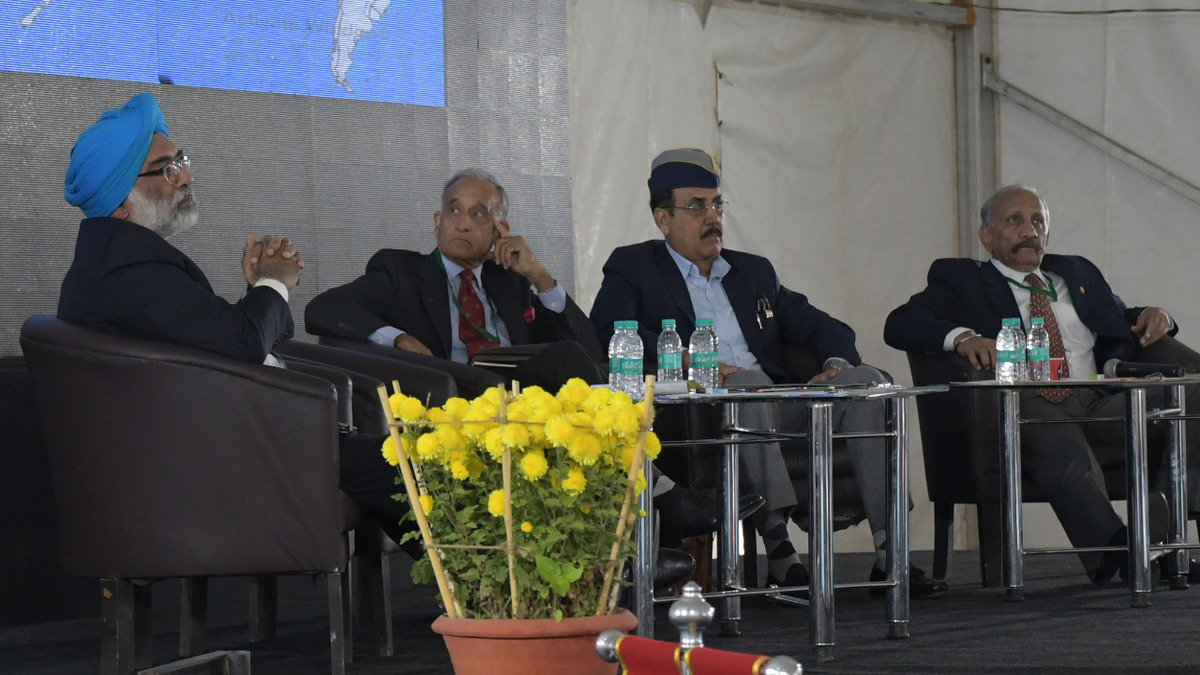CHITLEEN K SETHI
 Admiral Arun Prakash said India’s lack of national security strategy and reliance on defence imports put it at a disadvantage against China.
Admiral Arun Prakash said India’s lack of national security strategy and reliance on defence imports put it at a disadvantage against China.
Chandigarh: Former chief of naval staff Admiral Arun Prakash said Sunday that India lacked a national security strategy to deal with emerging security threats in the wake of the creation of the China-Pakistan axis.
“We have always lacked a grand security strategy. Slogans are no substitute to a national security policy. Unless you know where you want to go, how will you reach there?” he said.
Admiral Prakash, who retired as India’s 20th naval chief and chairman chiefs of staff in 2006, was speaking at a session titled ‘Evolving Indo-Pacific Concept: A game changer’ on the concluding day of the three-day Military Literature Festival in Chandigarh.
He emphasised the need for “strategic autonomy”, warning that India’s dependence on imports in the defence sector is very high and could prove to be the weakest link. “India needs to focus on industrial and technological development,” he said.
“Look at China, it is building even the tiniest bits of defence equipment on its own. We don’t make a rifle in India. China is economically, technologically and militarily superior to us. It has five times our GDP, and now with an axis with Pakistan, it has two fronts to put pressure on India.
“We need not run scared, but we need to be cautious. We cannot continue to neglect our defence forces the way we do.”
Limited scope of ‘Quad’
Adding to the discussion, Lt Gen. R.K. Sawhney (retd) said the newly-created Quadrilateral Security Dialogue or Quad — an understanding forged between US, Japan, Australia and India — has only a limited role to play in “containing” the Chinese aggressive pose in the South Asia region.
“The Quad is not an alliance, proto-alliance or a treaty. It is not a guarantee of security either and to think of Quad in any such way would be flawed. At best, it is an expression of solidarity in wake of the increased Chinese aggression in the South Asia sea region,” Sawhney said.
Former ambassador Gurjit Singh said through the Quad, America was trying to fill in the gaps in the region which China would otherwise fill. He pointed out that India was kept out of the various alliances in the region, beginning with ASEAN, and added that China is commanding influence over these alliances and this change has come only in recent years.
On a positive note, ambassador Singh said India’ stature had grown in the region and whatever Chinese were able to do “more”, India was able to do “better”.
He said India’s policy of SAGAR — security and growth for all in the region — was a good strategy going forward.
‘India in the centre, use this advantage’
Lt Gen. A.K. Singh (retd), who served as the lieutenant governor of Andaman and Nicobar Islands, said the shift from ‘Asia-Pacific’ to ‘Indo-Pacific’ was part of the American desire to reassert itself in a region where China was gaining ground. He said while the region offered several opportunities to India, it posed challenges too.
“We are in the centre of the region and we cannot remain an omni-player, trying to please everyone. We cannot keep hunting the hares and running with the hounds. We have to let go of the tentativeness and hesitation (in strategy) in this region. We need to see what is in it for us,” he said.
He added that India had “put too many eggs in developing the land route for trade through the Northeast. That is never going to develop, as the region is too fragile. The focus should be on developing the southern fulcrum route through the Andaman and Nicobar Islands. Port Blair can be developed as a trans-ship terminal”.
No comments:
Post a Comment